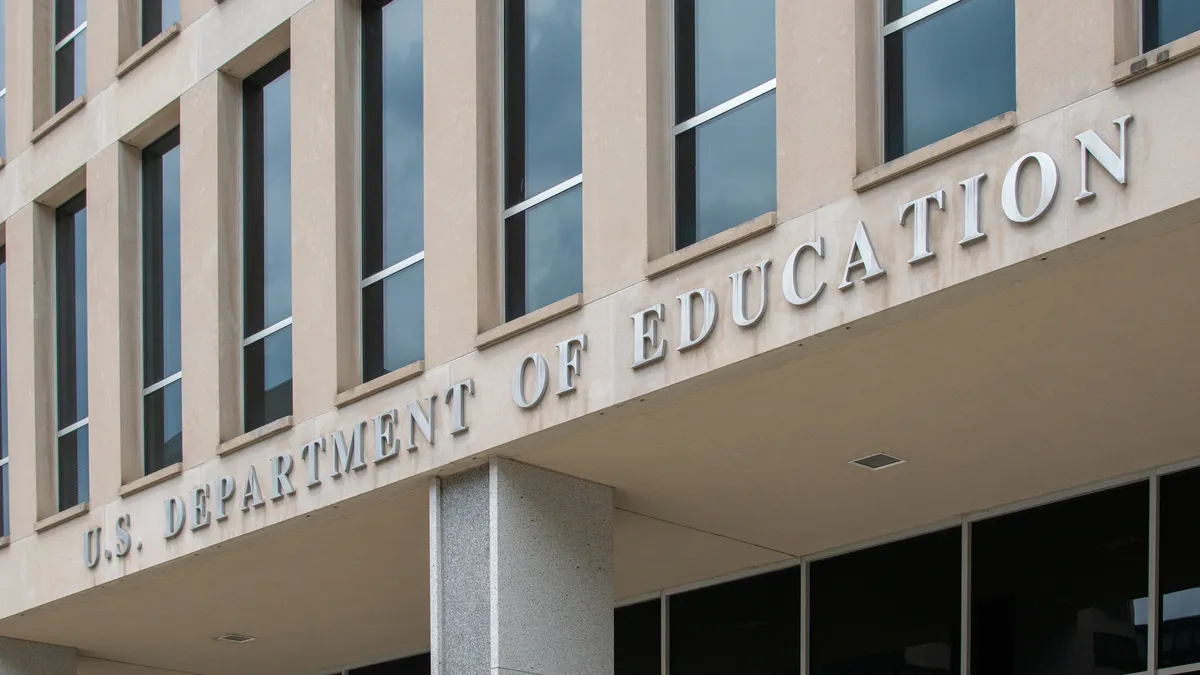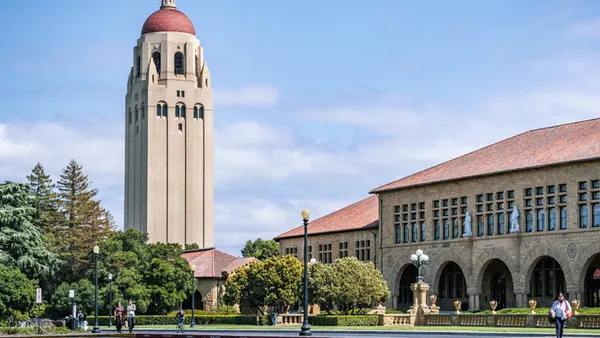UPDATE: Nov. 21, 2024: The Senate passed the FAFSA Deadline Act through unanimous consent Thursday, sending the measure to President Joe Biden’s desk.
Dive Brief:
- House lawmakers on Friday overwhelmingly passed a bill that would require the U.S. Department of Education to make the Free Application for Federal Student Aid available by Oct. 1 each year. The measure would take effect in 2025 for the 2026-27 FAFSA.
- The bill, passed by a 381-1 vote, comes after the Education Department’s rocky rollout of the revamped FAFSA during the last financial aid cycle. In 2023, the agency released the form in the final days of December — nearly three months later than it usually becomes available. The sole lawmaker who voted against the bill later said it was by mistake, Newsweek reported.
- Sen. Bill Cassidy, a Republican from Louisiana, has introduced companion legislation in the Senate, where lawmakers only have a short time to pass the measure before a new congressional session begins Jan. 3. If they don’t, the bill would have to be reintroduced for consideration.
Dive Insight:
Federal law currently requires the Education Department to release the FAFSA on or close to Oct. 1 “to the maximum extent practicable,” though the statute gives the agency until Jan. 1 each year to make the form available.
The FAFSA Deadline Act would remove this flexibility and require the U.S. education secretary to certify to Congress by Sept. 1 that the agency will meet the October deadline. If not, the education secretary will have to testify before Congress by Sept. 30 about the failure and the financial impact of the delay on students and their families.
Rep. Erin Houchin, a Republican from Indiana who introduced the bill, blasted the Education Department for the tumultuous FAFSA release last aid cycle.
She pointed to a recent report from the U.S. Government Accountability Office that found nearly three-quarters of calls to the Education Department went unanswered from January to May during the form’s rollout. She also noted that the Education Department has delayed the release of this year’s FAFSA.
The Education Department announced earlier this year that it would fully release the form by Dec. 1, though agency officials said on a call Thursday that they now expect to make it publicly available “in the coming days,” USA Today reported.
“It’s imperative that we do not allow this to become precedent,” Houchin said in support of the bill Friday. “We want this program to work.”
Democrats also overwhelmingly supported the bill — even after some initially rejected the measure. That includes Rep. Bobby Scott, the highest-ranking Democrat on the House’s education committee.
Scott voted against the proposal in July when the Republican-controlled House Committee on Education and the Workforce advanced the measure to the full House.
At the time, he argued the proposal would force the Education Department to rush the release of the FAFSA without any additional support or funding. In turn, the form could wind up riddled with the same technical issues that applicants experienced last cycle, he suggested.
But on Friday, Scott voted in support of the measure, noting that the bill would now take effect in 2025 instead of this year, as the Oct. 1 deadline has already passed for the current cycle.
The proposal “sets a clear, firm deadline for rolling out FAFSA white still giving the Department of Education time to ensure the application functions properly for all students,” Scott said just prior to the vote. “The bill strikes a balance between ensuring timely access to financial aid and not compromising the quality of the application process.”
Higher education groups have also thrown their support behind the bill.
Earlier this week, over three dozen higher education organizations urged House leaders to pass the measure.
“It is important to ensure that students and families have sufficient time to make one of the biggest financial decisions of their lives,” Ted Mitchell, president of the American Council on Education, wrote in a letter on behalf of the groups.
This year, the Education Department released the FAFSA on Oct. 1 to a small group of students to test the form. The agency announced Thursday that 14,000 students have since successfully submitted their forms, and that it hasn’t found any critical bugs during the testing period.













